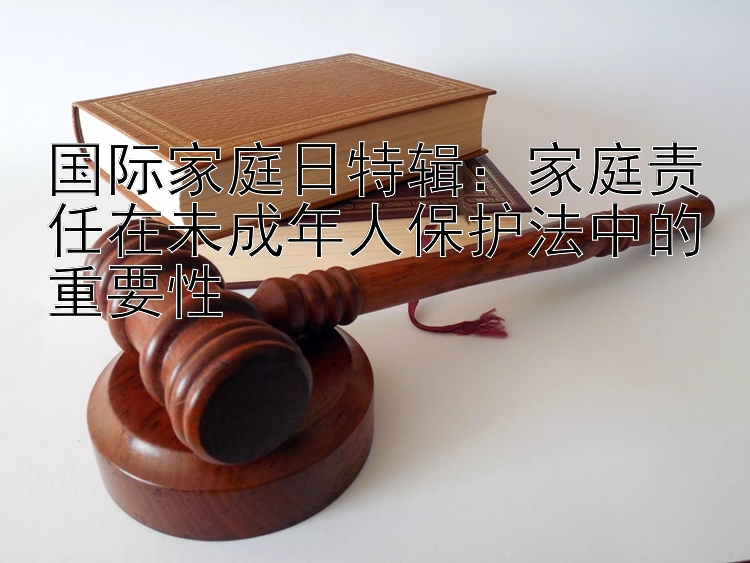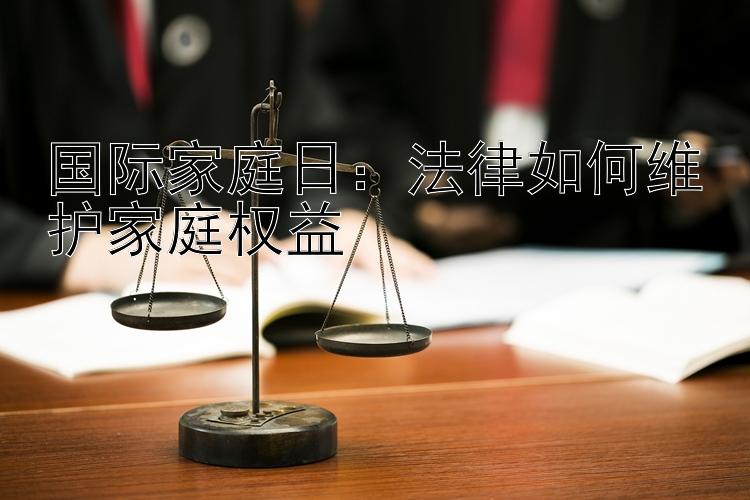"平衡工作与家庭:国际家庭日聚焦法律解决方案"
平衡工作与家庭:国际家庭日聚焦法律解决方案
引言: 国际家庭日, celebrated annually on May 15th, highlights the importance of families as the fundamental building blocks of society. It is a day dedicated to recognizing the critical role of families in fostering social well-being and cohesion. One of the most significant challenges faced by many individuals globally is balancing their work responsibilities with their family life. This article explores legal solutions and frameworks designed to support individuals in achieving this balance.
Legal Frameworks for Work-Life Balance:
- The International Labour Organization (ILO) Conventions:
- The ILO has been at the forefront of promoting decent work and has several conventions directly relevant to work-life balance. For instance, the Maternity Protection Convention, 2000 (No. 183) ensures that women have the right to maternity leave, promoting inclusive workplaces that support working mothers.
-
Convention No. 156 on Workers with Family Responsibilities advocates for policies and measures that enable workers to fulfill both their employment and family responsibilities.
-
European Union Directives:
-
The EU has comprehensive legislation aimed at reconciling work and family life. The Work-Life Balance Directive, proposed in March 2017, aims to ensure that both women and men can better balance their work and private life through measures such as paternity leave, parental leave, and carer's leave.
-
National Legislation:
- Many countries have implemented specific laws to address work-life balance. For example, the United States has the Family and Medical Leave Act (FMLA), which provides certain employees with up to 12 weeks of unpaid, job-protected leave per year for specified family and medical reasons.
- In Canada, provinces have their own legislation regarding parental leave, with some offering significant periods of paid leave.
Case Studies:
- Sweden's Parental Leave Policy:
-
Sweden is often cited as a model for its progressive parental leave policies. Both parents are entitled to 480 days of parental leave, with a portion of it being "daddy quota" intended for the father to use, encouraging equal participation in childcare.
-
The Netherlands' Approach to Flexible Work:
- Dutch law provides a right to request flexible working arrangements, recognizing that such flexibility is crucial for employees with family responsibilities. This right is not absolute but requires a fair and reasonable approach from both employers and employees.
Conclusion:
Balancing work and family is a complex issue that requires multifaceted legal solutions. International conventions, regional directives, and national legislation play a crucial role in creating a supportive environment for workers. By examining best practices and case studies from around the world, it's evident that legal frameworks can effectively promote work-life balance, contributing to happier, healthier families and more productive workplaces. As we celebrate International Family Day, it's essential to reflect on the role of law in ensuring that families are supported and valued.
Recommendations for Policymakers:
- Adopt a Comprehensive Approach: Implement policies that address the needs of all family members, including fathers, mothers, single parents, and caregivers of elderly relatives.
- Promote Gender Equality: Encourage policies that promote equal participation of both parents in childcare and household responsibilities.
- Flexibility in Work Arrangements: Support legislation that allows for flexible working hours and remote work options where feasible.
- Adequate Leave Policies: Ensure that all workers have access to sufficient paid parental and family leave.
By continuing to develop and refine these legal solutions, societies can move closer to achieving a true balance between work and family life, creating a more equitable and supportive world for all.








